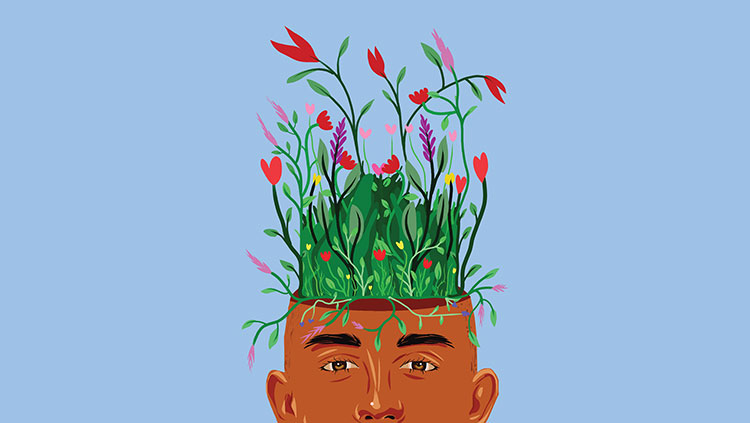Wired for Danger: The Effects of Childhood Trauma on the Brain
- Published19 Oct 2020
- Source BrainFacts/SfN
Childhood trauma physically damages the brain by triggering toxic stress. Strong, frequent, and prolonged, toxic stress rewires several parts of the brain, altering their activity and influence over emotions and the body.
This video is from the 2020 Brain Awareness Video Contest.
Created by Jasmine Purnomo
CONTENT PROVIDED BY
BrainFacts/SfN
Transcript
We have all experienced some sort of stress as children. Maybe it was a test you didn’t study for. Or moving schools and finding new friends. Regardless, it’s important to keep in mind that a little bit of stress from time to time is healthy: it helps us grow and understand how to overcome problems we may face.
However, when the stress response is triggered too many times, there can be lasting effects on the brain that carry on to adulthood. Stress plays a prominent role in the development of a child. The three types of stress include positive stress, tolerable stress, and toxic stress.
Positive stress will show as an increase in heart rate and an elevation in stress hormones. It is short-lived and is triggered during minor stress experiences such as taking a shot or being left in a daycare for the first time. However, with supportive adults to help them cope, children will gradually learn how to problem-solve and deal with adversity, leading to the development of a healthy stress response system.
Tolerable stress can be more serious. Perhaps you’ve lost a loved one or experienced a natural disaster. These types of situations can have potential for extreme damage on the brain, but with encouraging relationships, it will mend over time.
However, things can get serious when the stress response gets triggered too many times. This threat is known as toxic stress. It is strong, frequent, and prolonged for a long period of time. The root of toxic stress can be numerous things, such as abuse, neglect, or violence.
This type of stress will physically affect the brain, leaving certain parts rewired and changed. Toxic stress disrupts the development of brain structure and other organ systems, and it can even increase the risk for stress-related disease well into the adult years. The worse the experience in childhood, the greater the effects will be in adulthood.
Toxic stress causes permanent damage on the brain, focusing on the amygdala, prefrontal cortex, and the anterior cingulate cortex (aka the ACC). The amygdala, also known as the fear center, detects dangerous things in the surrounding area and tells the body to act. But it can become overactivated due to toxic stress.
In other words, your amygdala is always telling your body that you are in danger, resulting in chronic stress, where one feels unsafe, fearful, and irritated. Furthermore, victims will often overreact to minor triggers because trauma sensitizes one’s amygdala, meaning that fear responses are triggered by lower levels of stress.
The prefrontal cortex, or the thinking center, regulates the stress response system by making things seem less scary than they really are. Outside of stress, it helps regulate our emotions and memory as well as sensory processing which allows us to effectively use our body in certain events, such as learning and problem solving.
However, trauma causes the prefrontal cortex to become underactivated. Consequences of a damaged prefrontal cortex include difficulties with concentration, attention, and learning. This is because when we are under stress, cortisol is released from the adrenal glands on our kidneys.
Cortisol is a hormone that increases heart rate, blood pressure, respiration, and muscle tension to prepare us to fight or run away, otherwise known as the fight-or-flight reaction. High levels of cortisol impair one’s ability to think rationally or logically. So, when our body is always thinking it is in danger, there will be constant high levels of cortisol in our body, affecting our ability to concentrate and learn.
Connected to the prefrontal cortex, the anterior cingulate cortex is also one of the structures damaged from toxic stress. Known as the emotion regulation center, it controls the affect regulation, the ability to control and manage uncomfortable emotions during a stressful moment. A damaged anterior cingulate cortex results in difficulties with regulating emotions. For example, if someone gets pranked, they could remain scared long after the joke ends.
Childhood trauma can cause many psychological issues, such as PTSD, high stress levels, and depression. However, these problems can be solved with patience, love, and care. Research indicates that supportive, responsive relationships with caring adults as early in life as possible can help prevent or reverse the damaging effects of toxic stress.
One of the safest ways to solve one’s trauma is over time. It’s a good idea to build confidence progressively and work towards a goal in which one can feel safe again. In addition, patient and loving adults can help relieve toxic stress, as these relationships will help build trust and a sense of community within the child, resulting in them eventually learning how to overcome their trauma.
Recovering can be a long and difficult journey, but with enough patience, support, and care, one can finally be free of that burden.
Also In Childhood & Adolescence
Trending
Popular articles on BrainFacts.org

















